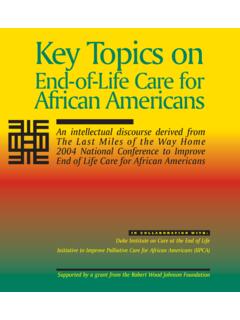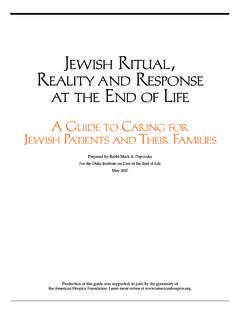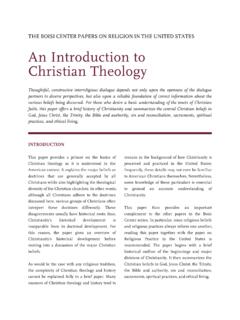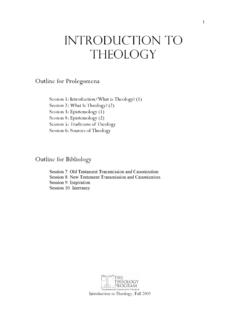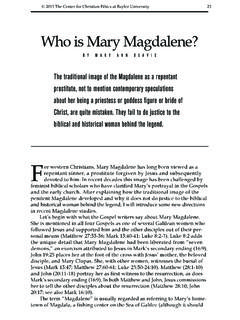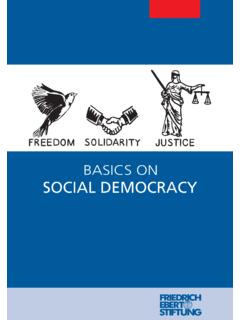Transcription of Theological Studies (This .pdf version reproduces ...
1 1 Gollwitzer, Theorie und Praxis im theologischen Denken, Evangelische Kommentare 10 (1977):522 25. 2Cf. Frank Whaling, The Development of the Word `Theology , Scottish Journal of Theology 34(1981): 289 312. Note that Whaling s agenda is to provide historical warrant for a contemporary focus onphilosophical theology. As such, he pays no attention to forms of early Christian doctrinal reflection thattook place without the designation theologia forms central to understanding theology as Studies 51 (1990): 650 72 (This .pdf version reproduces pagination of published form)THE RECOVERY OF THEOLOGY AS A PRACTICAL DISCIPLINER andy L. MaddoxIn the year 1977 Helmut Gollwitzer argued that the most critical agenda forcontemporary theology was the recovery of a more vital relationship between theologicalreflection and Christian life in the world. For this to happen, he suggested, theology must cometo see itself as a second-order activity whose primary task is to mediate between present andfuture praxis.
2 Put in classical terms, theology must recover a sense of being a scientia practica; , at core a practical for recovering such an understanding of theology as a practical discipline havebecome increasingly common in recent years. These calls have surfaced within a variety oftheological contexts, but have coalesced around a largely shared set of concerns. My purpose isto survey the various stimuli pushing for a recovered practical theology, both to provide a betterunderstanding of the agenda they propose and to reflect on a key problem which such an agendamust fact that this is a call for a recovery of theology as a practical discipline suggests mystarting point. One of the responses to the current malaise in Theological circles has been anincrease of historical investigation into the changing understandings of the nature of theology,seeking to determine what has brought us to the present situation.
3 Of particular interest has beenthe shifting identifications of practical theology. A brief history of this term provides a helpfulcontext for considering the current OF PRACTICAL THEOLOGYIn the pre-Christian setting, the Greco-Roman world distinguished three types oftheology (theologia). (1) mythical, which included poetic and mythical descriptions of thevarious Greek and Roman gods; (2) civil, which dealt with the religious ceremonies surroundingthe civil religion of Rome; and (3) natural or rational, which involved philosophical reflection onthe nature of Ultimate 3Cf. Max Seckler, Theologein: Eine Grundidee in dreifacher Ausgestaltung, TheologischeQuartelschrift 163 (1983): 241 64. Seckler argues that it is seriously misleading to determine themeaning of theology for Christians from Greek precedents. Rather, we should focus on three forms orsources of Christian reflection: (1) exposition of texts, (2) rational interest in God (like Greek naturaltheology) and (3) the sapiential desire of faith to understand.
4 Seckler correlates this threefold origin to thelater threefold ordering of academic theology biblical, fundamental, and doctrinal. This implies more ofa division between these various forms of reflection than appears warranted at this stage. It was the latersocial situation of the university that fostered these splits. 4 This point is argued by G. Mantzarides, The Meaning of theologia, Kleronomia 2 (1970): 103 20(article in Greek with French summary). 5 Edward Farley has provided an influential analysis of the changing genres of theology in Theologia:The Fragmentation and Unity of Theological Education (Philadelphia: Fortress, 1983). On earlyunderstandings, see 31 37. 6 Note Augustine s conviction about theology: The only merit of this science is that from it a savingfaith is born, nourished, defended, and strengthened. (De Trinitate, Bk. 14, ) Cf.
5 Seckler, Theologein, these precedents, it is significant that early Christians were hesitant to use theword theologia. Not because they neglected or rejected Theological activities,3 nor becausethey totally avoided pre-existing theologia. While they rejected Greco-Roman mythology andcivil religion, several early Christians engaged in apologetic dialogue with Greco-Romanphilosophical theology. Apparently, they avoided the word theologia because they did notconsider their theology to be mythical, civil, or philosophical; it was based in revelation andessentially practical in per se as PracticalEarly Christian practice suggests a two-fold understanding of theology, , knowledgeof At the most basic level, it was understood as a habitus of the Christian believer, acognitive and affectional disposition or orientation toward God, others, and creation. It mightbest be considered the implicit worldview that guided the temperament and practice of believers lives.
6 Such a disposition was not simply bestowed with conversion; it needed to be need defined the task of theology in its second major sense: the discipline of study,instruction, and shepherding directed toward forming theology/habitus in believers. The focus ofsuch theology/ discipline was on understanding and communicating the nature of the interactionbetween God and humanity. To be sure, doctrinal teachings were increasingly divided into thosedealing with soteriology (economia) and with God (theologia). However, early Christiantheologians sought to base even the most metaphysical reflections about God on the life of faithand to draw from these reflections pastoral and soteriological 7A pioneering analysis of the history of the changing social locations of theology and the resultingeffects can be found in Charles Davis, Theology in Seminary Confinement, Downside Review 81(1963): 307 16 (on this point see 310 11).
7 For a related analysis focusing on current differing socio-cultural settings, see Robert Schreiter, Constructing Local Theologies (Maryknoll, NY: Orbis, 1985),80 91. 8A good example is St. Basil s On the Holy Spirit. This influential analysis of the interrelations of theGodhead was occasioned by the issue of whether Christians should pray to the Holy Spirit. 9Cf. Farley, Theologia, 35 38; Davis, Seminary Confinement, 311; and Schreiter, Local Theologies,91. 10It is important to note that theologia (doctrine of God) and economia (doctrine of salvation) arecommonly grouped under a larger heading by this time. At first, it is usually sacred doctrine. Increasingly it becomes simply theology. Thus, the debate was partly over which of the two originalconstituent parts of theology should be more dominant, or how to interrelate them effectively. Cf.
8 Seckler, Theologein, 247 practical nature of early Christian theology/discipline was also evident in its This was typically an episcopal/pastoral setting (concerned with shepherding Christiancongregations) or a monastic setting (addressing the needs of the ascetic and mystical life). Theform of Theological activity appropriate to such settings was not the authoring of academictreatises on Theological topics; it was the production of catechisms, liturgies, commentaries, andspiritual discipline manuals. The Theological reflection demanded by such forms of theologicalactivity is as rigorous as that of any other form. Their distinctive feature, however, is that theydeveloped in response to the needs and questions of typical Christian life; , How should wepray? What does this verse mean? Should we call Jesus God ? and How should we trainup new Christians?
9 8In its early medieval period, the social location of Western Christian theology began toswitch to the newly emerging universities. At first, most such institutions were connected toeither a monastery or a cathedral and retained the concerns of the earlier period. Accordingly,theology continued to be defined as a practical habitus which was fostered by theology/discipline. By the twelfth century, however, the cathedral universities in particular wereseparating from their previous homes and adopting an Aristotelian model of a theoretical science(theology/science) aimed at assimilating rationally demonstrated and ordered knowledge for itsown was the effect of this shift in social location upon Western Christianity sunderstanding of theology? It provoked the first debate, in the 13th century, over whethertheology was really a practical discipline, , dealing with humans and the things humans do, inlight of God, or primarily a speculative science, , concerned with contemplating God per , like Bonaventure, continued to view it as a practical 11 See: Aquinas, Summa Theologica, Q.
10 1, Art. 4; and Bonaventure, Commentary on the Book ofSentences, Preamble, Q. 3. Cf. Yves Congar, A History of Theology (Garden City, NY: Doubleday,1968), 119, 127 30; Ulrich K pf, Die Anf nge der theologischen Wissenschaftstheorie im (T bingen: Mohr, 1974), 198ff; and Wolfhart Pannenberg, Theology and thePhilosophy of Science (Philadelphia: Westminster, 1976), 231ff. This debate divided roughly along thelines of those who were in the now independent universities versus those in schools with continuingmonastery ties, cf. Andrew Louth, Discerning the Mystery: An Essay on the Nature of Theology (Oxford:Clarendon, 1983), 5. 12Cf. Alexander Schmemann, Church, World, Mission (Crestwood, NY: St. Vladimir s SeminaryPress, 1979), 129 44. For an overdrawn contrast between the Theological styles of East and West, arguingthat these date back to the development of the independent Western universities in the Twelfth Century,see Chrestos Yannaras, Orthodoxy and the West, Greek orthodox Theological Review 17 (1972):115 31 (cf.)


